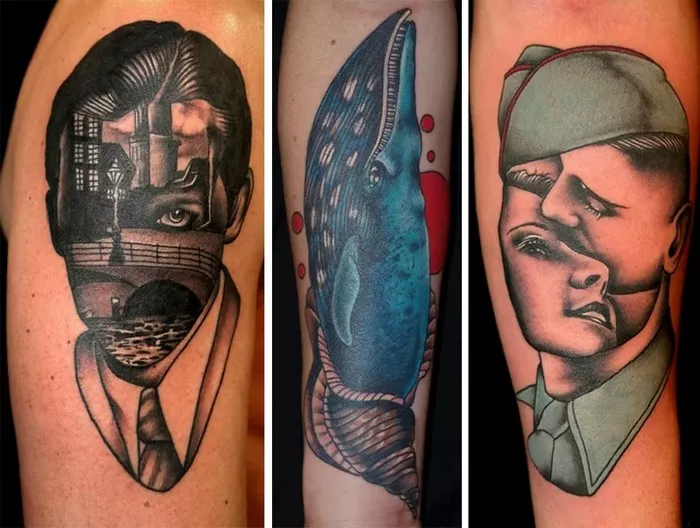Tattooing, an ancient art form dating back thousands of years, has transcended its traditional roots to become a global phenomenon with deep cultural, social, and personal significance. From tribal markings to modern body art, tattoos have evolved into a powerful means of self-expression, identity formation, and storytelling. In this comprehensive exploration, we delve into the multifaceted significance of tattooing, examining its historical context, contemporary relevance, and psychological impact.
Historical Roots: Tracing the Origins of Tattooing
The practice of tattooing is as old as human civilization itself, with evidence of tattooed mummies dating back to ancient Egypt and prehistoric times. Across various cultures and civilizations, tattoos have served diverse purposes, ranging from tribal rites of passage to religious symbolism. In Polynesian cultures, intricate tattoos known as “tatau” were symbols of status, identity, and cultural heritage, while in Japan, irezumi (traditional Japanese tattoos) were associated with spirituality and protection. Throughout history, tattoos have been markers of belonging, initiation, and commemoration, reflecting the rich tapestry of human experience.
Cultural Significance: Tattoos as Cultural Artifacts
Tattoos serve as potent cultural artifacts, embodying the beliefs, values, and traditions of diverse societies around the world. Each tattoo design carries layers of meaning, often rooted in cultural mythology, folklore, or symbolism. In indigenous communities, tattoos may represent ancestral connections, spiritual beliefs, or tribal affiliations, preserving cultural heritage in a tangible form. Furthermore, tattoos can serve as acts of resistance or cultural revival, reclaiming identities marginalized by colonialism or globalization. In contemporary culture, tattoos continue to evolve as dynamic expressions of cultural fusion, blending traditional motifs with modern aesthetics to create unique visual narratives.
Social Dynamics: Tattoos as Social Currency
Beyond their cultural significance, tattoos play a pivotal role in shaping social interactions and relationships. In many societies, tattoos serve as markers of identity, signaling affiliation with specific subcultures, communities, or ideologies. From biker gangs to punk rockers, tattoos have long been associated with countercultural movements, providing a sense of belonging and solidarity among like-minded individuals. Moreover, tattoos can function as conversation starters, sparking dialogue and connection between strangers who share common interests or experiences. In today’s interconnected world, social media platforms have amplified the social currency of tattoos, allowing individuals to showcase their ink and connect with a global community of tattoo enthusiasts.
Personal Expression: Tattoos as a Canvas of Self-Identity
At its core, tattooing is a deeply personal form of expression, allowing individuals to adorn their bodies with symbols, images, and words that hold personal significance. For many people, tattoos serve as visual memoirs, commemorating important life events, relationships, or milestones. Whether it’s a portrait of a loved one, a quote that resonates deeply, or a symbol of resilience, tattoos often reflect the wearer’s values, aspirations, and innermost emotions. Moreover, the act of getting tattooed can be a transformative experience, empowering individuals to reclaim ownership of their bodies and assert their autonomy. In this way, tattoos serve as a tangible expression of self-identity, empowering individuals to craft their own narratives and defy societal norms.
Psychological Impact: Understanding the Power of Ink
The decision to get tattooed is not merely a superficial choice but can have profound psychological implications. Research suggests that tattoos can serve as therapeutic tools, helping individuals cope with trauma, grief, or mental health challenges. For some, the process of getting tattooed is cathartic, providing a sense of control and agency in the face of adversity. Additionally, tattoos can serve as reminders of personal growth and resilience, serving as constant sources of inspiration and empowerment. However, it’s essential to acknowledge that tattoos are not immune to stigma or discrimination, and individuals with visible tattoos may face prejudice in certain social or professional contexts. Despite these challenges, many tattoo enthusiasts embrace their ink as badges of honor, refusing to conform to narrow standards of beauty or acceptability.
Conclusion
In conclusion, the significance of tattooing extends far beyond its aesthetic appeal, encompassing a rich tapestry of cultural, social, and personal meanings. From its ancient origins to its contemporary resurgence, tattooing remains a powerful form of self-expression, identity formation, and storytelling. As we continue to navigate the complexities of the modern world, tattoos serve as enduring symbols of resilience, individuality, and human connection. Whether as cultural artifacts, social currency, or personal memoirs, tattoos remind us of the enduring power of ink to leave a lasting impression on both body and soul.

